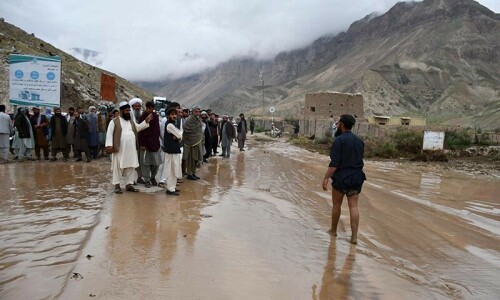ISLAMABAD: The Pakistan Institute of Legislative Development and Transparency (Pildat) has observed that the National Assembly dissolved days before completion of its term has left democracy almost as vulnerable in the country as it was when it was elected on July 25, 2018.
“The National Assembly and our elected representatives have allowed themselves to be used to weaken instead of strengthening democracy in the five-year tenure,” it said in an analysis of performance of 15th National Assembly, without mentioning the hasty passage of controversial bills like official Secrets Act Amendment bill.
The 15th National Assembly passed a total of 279 pieces of legislation in five years with the latest flurry of hasty legislation undermining basic tenets of constitutional scheme of democracy and human rights. The legislative activity in the 15th National Assembly witnessed an increase of 45 per cent over the 192 laws passed during the 14th National Assembly.
The 15th National Assembly witnessed two governments: the first from August 18, 2018 to April 10, 2022, with PTI Chairman Imran Khan as the PM while the second government was formed by a coalition of PDM and PPP with Mr Shehbaz Sharif as the PM, which lasted from April 11, 2022, to August 09, 2023.
Pildat notes 15th legislature only the fourth ever to complete five-year constitutional term
The PTI government relied heavily on ordinances for the purpose of legislation. Of 75 ordinances laid in the National Assembly in five years, only three were promulgated by the coalition government while 72 were promulgated by the PTI government.
While the 14th National Assembly passed and promulgated only 38 ordinances, a 97 per cent increase was witnessed in the number of ordinances passed by the 15th National Assembly.
The 15th National Assembly passed the largest number of laws as compared with the previous three assemblies starting from 2002. Just over the last three weeks of the 15th National Assembly, 73 bills were passed.
Of these 73 bills, 36 (49pc) bills were not referred to committees concerned.
In its five-year term, the 15th National Assembly was only convened for 452 sittings or average 90 sittings per year.
The previous (14th) National Assembly was convened for 495 sittings or on average 99 sittings per year which in itself is not a great performance but it still shows a decrease of 9pc in sittings.
The National Assembly only consumed a total of 1,245 working hours in five years or on average 249 working hours per year which show a 21pc decrease in productivity from the previous assembly which spent 315 working hours per year on average. It must be noted that the average cost to taxpayers of each working hour in five years comes to Rs24.23 million per hour.
Among 15 legislatures of Pakistan, this National Assembly is the fourth one which completed its term.
Earlier assemblies which completed their five-year term were elected in 2002, 2008 and 2013. The biggest show of confidence in the National Assembly comes from its own membership in terms of their attendance.
The prime minister, as the Leader of the House, sets that trend. But just 11pc attendance by Prime Minister Imran Khan and only 17pc attendance of assembly sittings by Prime Minister Shehbaz Sharif showed how much importance they gave to the National Assembly sessions.
The Pildat analysis notes that successive prime ministers have given limited importance to the very house that elects them. As the prime minister, Mr Nawaz Sharif did not attend more than 14pc sittings of NA sessions, while Mr Shahid Khaqan Abbasi attended 19pc sessions.
The average attendance of MNAs in the past five years stood at 61pc, though it was 67pc before the PTI’s decision to quit the National Assembly.
Despite the high level of attendance documented in the National Assembly records, it was frequently found lacking quorum — the presence of around 25pc of members during a session.
Published in Dawn, August 11th, 2023
















































Dear visitor, the comments section is undergoing an overhaul and will return soon.